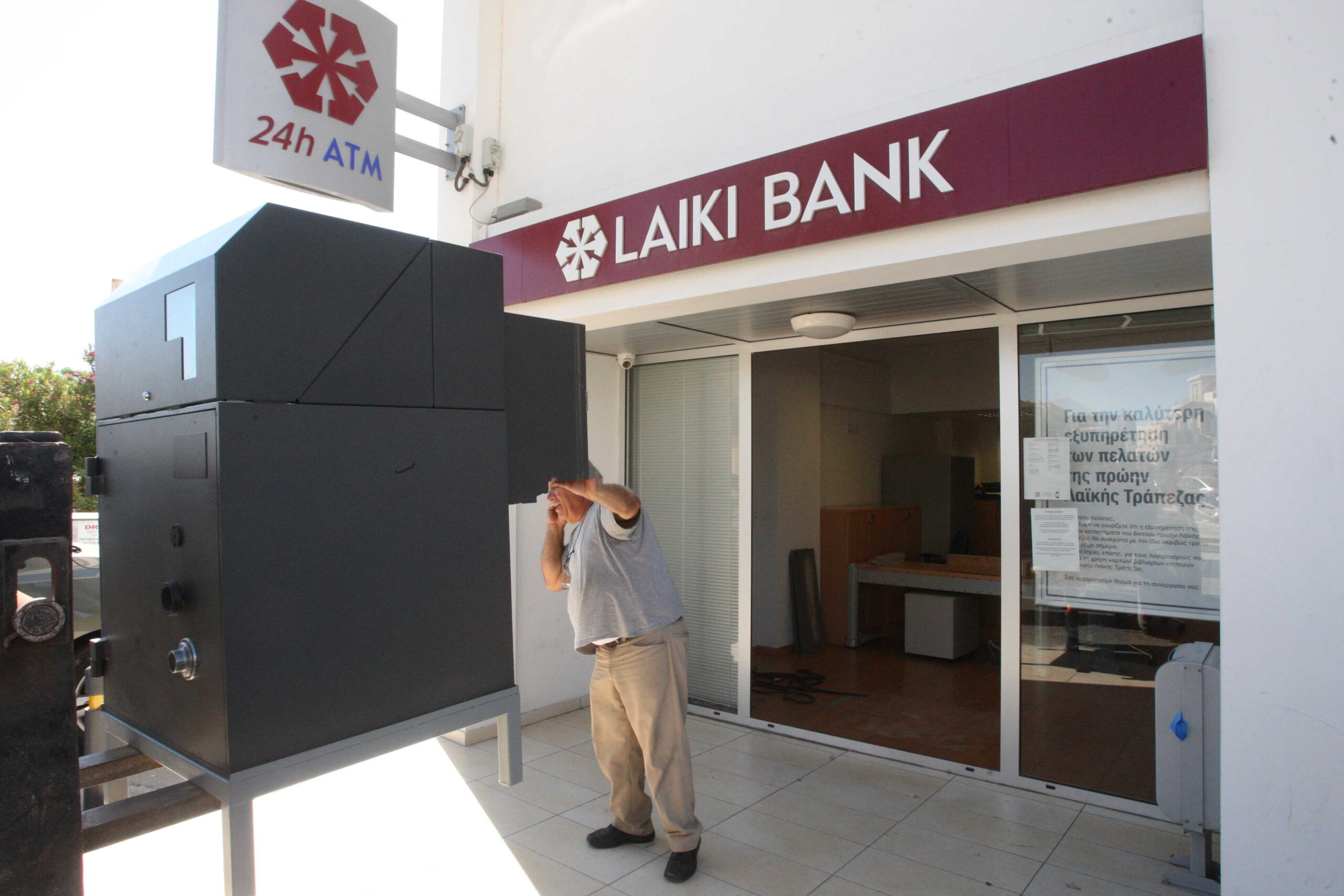The ‘controlled resolution’ of RCB in the wake of the Ukraine crisis is a minor bump in the road compared to the 2013 crisis, but one expert says it could have been prevented
Although the winding down of RCB – formerly controlled by Russia’s VTB – as a purely banking operation has gone smoothly, avoiding a major disruption to the financial sector, one analyst has bucked the trend and asks why this could not have done been earlier, before the current round of sanctions related to the Ukraine crisis.
“VTB was on the EU sanctions list all the way back to July 2014, and yet during this time the regulator in Cyprus [the Central Bank] did nothing,” said economist Alex Apostolides when contacted by the Cyprus Mail.
“The bank could have been spared – under a different shareholding structure – had authorities here been more proactive. In the end, it took Frankfurt [European Central Bank] to step in.”
In this sense, he maintains, the closure of RCB as a bank – but not as a going concern, as it intends to transform into an asset management company – was an avoidable casualty of the fallout from the war in Ukraine.
The consensus view goes like this: the outbreak of war in Ukraine made it difficult for RCB to continue operating as it had until February 24 for three reasons.
First, after the invasion, an outflow of deposits began. Though not large, it had to be managed. At the end of 2020, RCB had deposits of €2.8 billion that were reduced to €1.5 billion. A more massive outflow would have put the bank at risk and triggered the Single Resolution Mechanism. In such an eventuality, there could be no guarantee that depositors would get their money back.
Second, a large part of RCB’s revenues depended on the Russian market.
Thirdly, the escalation of the war and the imposition of sanctions added uncertainty.
RCB itself commented, when announcing the decision to end banking operations on March 24, that “although RCB maintains ample levels of liquidity and capital adequacy, the ongoing and highly volatile geopolitical situation necessitates this transformation and the adoption of a new strategy – a gradual exit from banking operations while safeguarding the interests of its clients…”
Two days earlier RCB announced it had sold a €565 million loan portfolio to Hellenic Bank, helping it cover the deposits it had. Although not mentioned on the day, this was designed to generate the money needed to repay all its depositors. If guaranteed deposits of up to €100,000 were not repaid, the government would have to pay depositors, while those with bigger deposits lost some of their money.
On March 24, RCB announced it would terminate its banking operation (its banking licence would be withdrawn) and become an asset management company or AMC. For now, RCB still has a banking licence but under restrictions – it cannot accept deposits or make loans – until all its banking business is settled. The transition to AMC – pending approval by regulators – is expected to take some months.
The change in shareholding may have been left too late, announced on the day Russia invaded Ukraine. On this day it was announced that Russia’s state-owned VTB Bank transferred its 46.29 per cent stake in the bank to the management of RCB Cypriot, making it a 100 per cent Cypriot-owned bank.
The management of the bank, headed by CEO Kyril Zimarin, already held 49.9 per cent of RCB’s stock which it had bought in 2017. The stock was held by Cyprus-registered companies, the beneficiaries of which had Cypriot citizenship, thus making RCB a fully Cypriot-owned bank.
The move came amid new sanctions against Russia in a drive to isolate Moscow from the global economy and could only be seen as such. The new shareholder structure, had to be approved by the Single Supervisory Mechanism, which could would have taken some months, but the indications were that the ECB was unlikely to give the go-ahead. This forced the change of plan.
The sale of VTB’s shareholding also undermined confidence in the bank, and Standard and Poor’s ratings agency had downgraded its rating because it no longer belonged to the much bigger VTB group.
Inevitably, contrasts are being made to the 2013 financial meltdown, when Laiki – the island’s second largest lender – was wound down and its assets and employees transferred into Bank of Cyprus. The latter meanwhile had to enforce a ‘haircut’ of close to 50 per cent, on deposits of over €100,000, while Laiki depositors lost all their money above the guaranteed amount. The devastation in the banking sector was massive.
The ‘controlled resolution’ of RCB now seems a minor bump in the road by comparison.
“Yes, you can say the winding down of RCB has gone smoothly. But that’s only half the story,” remarks Apostolides.
The economist argues the bank’s closure was preventable. VTB and senior officers were on the EU Council’s sanctions list since 2014 (https://eur-lex.europa.eu/eli/dec/2014/145(1)/), and yet the regulator here took no steps to bring about a change in RCB’s shareholding structure.
In this way, RCB – by all accounts a robust lender, that passed the last year’s bank stress tests comfortably – could have been kept going.
“Rather than toot our own horn here in Cyprus, about how the winding down of RCB happened in an orderly fashion and so forth, my contention is that the bank’s closure will have a significant impact,” says the economist.
First, the loss of RCB means less competition in the banking sector – driving up the cost of borrowing, or interest rates – to the detriment of consumers.
Secondly, there will be a real reduction in loanable funds in Cyprus – and that will affect the market.
“Sure, it could have been a lot worse had there been a bank run now – but that’s like saying you avoided the worst-case scenario while you could have avoided everything in the first place.
“Clearly, if we should give any plaudits for evading the worst, they should go to Frankfurt. And so, questions need to be asked about the lack of action by the Cyprus banking regulator all these years.”
Michalis Maratheftis, deputy CEO of RCB, was keen to stress that the transformation of the business into an asset management company will come with the least reverberations – be it for depositors or for staff.
“The depositors are secure, they will merely transfer their accounts to a bank of their choosing, and we’ve made it extremely easy for them to do so – they don’t even need to visit an RCB branch, they can just fill out a form we’ve sent them as an email attachment.”
As for the fate of the bank’s some 370 employees – about whom much has been said – Maratheftis declined to go into detail, except to say that the company will deal with them “in the most ethical way” and that they will all be compensated fully.
He challenged media reports that most of RCB’s staff would be hung out to dry, and that only 50 will get to keep their job once the transformation is completed.
Uncertainty remains for the employees, who were not treated in the same way as Laiki’s in 2013. Bank of Cyprus was obliged to hire all of them. More recently, Hellenic Bank had to hire most of the Co-op Bank’s employees when it folded. In the case of RCB, 16 of its employees moved to Hellenic Bank to manage the loan portfolio sold.
Maratheftis did say that RCB had one of the best, “if not the best” indexes among lenders operating in Cyprus – a capital ratio exceeding 27 per cent, as well as robust liquidity.
It was this high capital ratio and high liquidity, ultimately, that ensured no depositors would lose their money.








Click here to change your cookie preferences